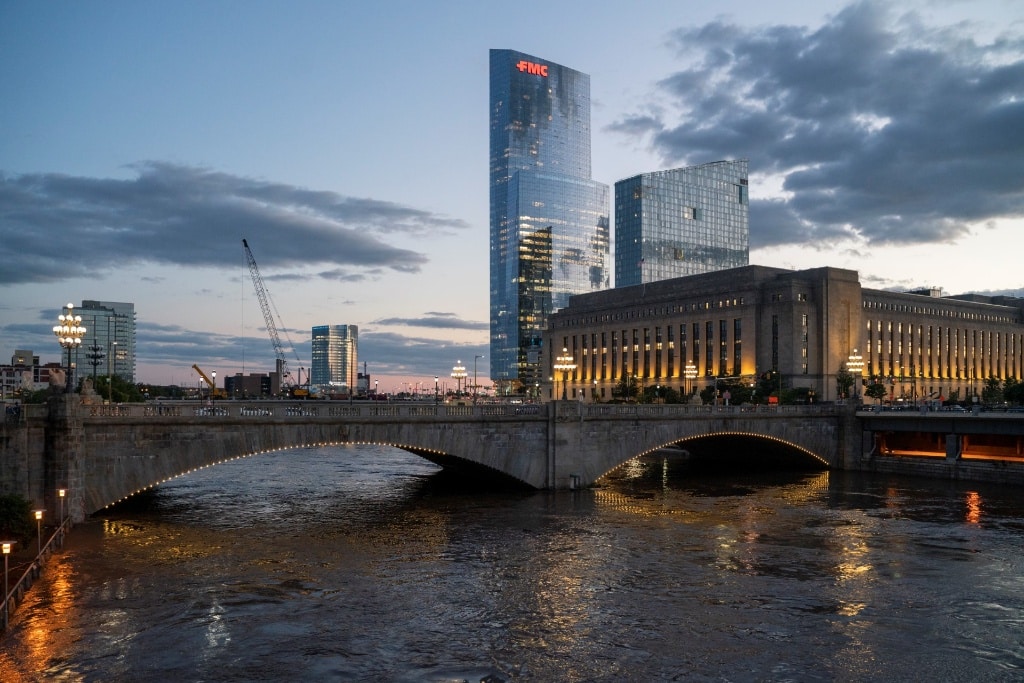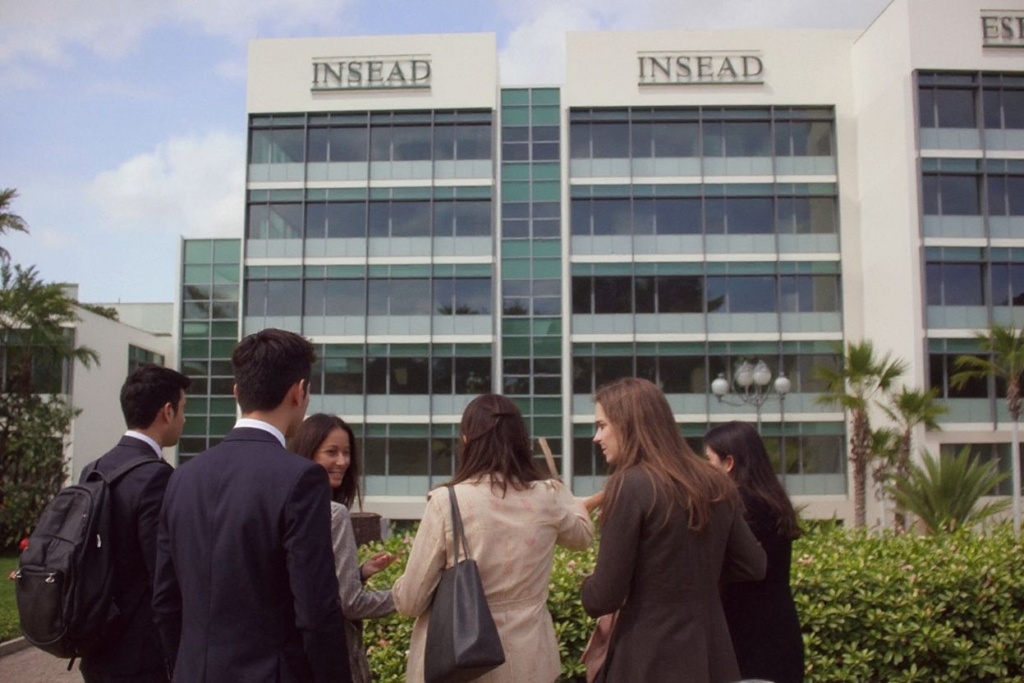
Is it possible to study for an MBA without work experience?
Most MBA programmes require applicants to acquire a certain amount of work experience because of the nature of graduate learning — especially in programmes which rely on real-life business case studies.
Take Harvard Business School’s (HBS) unique case study method, for example.
“Cases expose students to real business dilemmas and decisions,” shares Nitin Nohria, a former dean at HBS, in the Harvard Business Review.
“Cases teach students to size up business problems quickly while considering the broader organisational, industry, and societal context.”
Of the seven vital meta-skills students gain from the case method, Nohria noted the preparation required before these discussions and the benefits gained by discussing cases in small study groups.
Students typically spend several hours reading, highlighting, and debating cases before class — sometimes alone and sometimes in groups. “The number of cases to be prepared can be overwhelming by design,” he shares.
Discussing cases helps students practice collaborating with others.
According to the former HBS dean, most of the school’s alumni often say they come away from the case method with better skills to participate in meetings and lead them.
Hence, it’s clear that pursuing an MBA without work experience will hold you back from experiencing the full potential of this prestigious postgraduate programme.
But why are many still keen on going down this path despite the lack of work experience?
What makes an MBA such a lucrative postgraduate option?
An MBA stands as the undisputed champion among postgraduate business degrees worldwide.
Its appeal is easily understandable, considering the profound impact MBA graduates have made in assuming prominent leadership roles across diverse industries and leading companies, including renowned giants like Google, Amazon, and Microsoft.
Beyond just the prestige, the allure of the MBA lies in the promise of lucrative rewards throughout one’s professional journey.
Over a post-MBA lifetime, MBA graduates can look forward to substantial seven-figure salaries throughout their professional journey.
And you don’t even need an MBA from elite institutions like Harvard and Stanford to obtain such high-paying outcomes.
According to the PayScale survey, MBA graduates from the top 50 business schools in the US make an average of US$90,000 to US$150,000 per year.
This impressive return on investment is just one of the many advantages and privileges associated with this postgraduate degree.
Can you get a job as an MBA graduate with no work experience?
If you are worried about finding a job after your MBA without any work experience, fret not. The good news is that you can get a job as an MBA graduate even if you don’t have prior work experience.
Many industries value the advanced skills and knowledge you gain through an MBA programme, such as strategic thinking, leadership, and business management. Entry-level positions in consulting, marketing, and finance are good options for MBA graduates.
While these roles may not offer the same high salaries as those secured by graduates with more experience, they are a great stepping-stone and provide you with the hands-on experience and industry insight needed to succeed.
 Undertaking an MBA without any work experience opens doors to high-level business education, giving fresh graduates a jumpstart in their careers.
Undertaking an MBA without any work experience opens doors to high-level business education, giving fresh graduates a jumpstart in their careers.
10 MBA without work experience open to fresh grads
1. Stanford University, Graduate School of Business
Collaboration, not competition, is key in a Stanford classroom.
True to this philosophy, the Standard MBA programme does not require any work experience.
The two-year course will see you pushed and challenged by the best-in-class faculty. You get to work closely with students from all across the globe and from different backgrounds.
In the first year, you build your foundation in general management knowledge to help you gain global exposure.
During the second year, you study elective courses to broaden your perspective, strengthen your areas of development, and explore new subjects.
Faculty members will tailor their approach to maximise the learning process. This is done through lectures, simulations, prototyping solutions, roleplay, discussion, and debate.
Stanford’s Graduate School of Business is also a research institution and business school, so students learn from world-class researchers and successful business leaders.
2. Georgia Institute of Technology, Scheller College of Business
Located in the heart of Midtown Atlanta’s Tech Square, Scheller is a hub of Fortune 500 company headquarters, corporate innovation centres, and inventive start-ups.
The Georgia Tech Scheller full-time MBA programme prepares students to tackle demanding business challenges in a digital-first, tech-driven world.
It does this with MBA practicums that expose students to real business problems, ranging from marketing to sustainable business consultation.
All MBA students at Scheller College of Business are also automatically part of the CHARGE programme, an initiative designed to empower students to develop their unique leadership abilities through events and activities.
It integrates a personalised leadership development plan, enabling students to set and work towards goals effectively.
The Scheller College of Business does not require work experience for its full-time and evening MBA programmes. However, the admission committee prefers applicants to have at least two or three years of work experience.
 Lea Jouannais Weiler (pictured in the centre) from Yale University speaks during the US Goncourt Prize Selection Ceremony at Albertine Books in New York City.
Lea Jouannais Weiler (pictured in the centre) from Yale University speaks during the US Goncourt Prize Selection Ceremony at Albertine Books in New York City.
3. Yale School of Management, Yale University
Yale’s two-year full-time MBA does follow the traditional structure of an MBA programme.
In the first year, core courses are carefully planned to build a student’s understanding of the whole organisation.
During the second year, students can curate an academic experience that consists of taking courses from the School of Management and adding as many courses from other parts of Yale University.
On top of this, there are several additional features to Yale’s MBA programme.
Students can travel for a weeklong course at another business school, study with others from across the globe in a virtual global course, or travel for a nonprofit consulting engagement.
Throughout this programme, students will form and manage teams. Together, they’ll know what works and what doesn’t — and apply those lessons the next time around.
Online “raw’ cases simulate real-world decision-making by asking students to shift through documents, videos, news, articles, and other data.
Although full-time work experience is strongly encouraged, it is not a requirement for admission.
4. New York Institute Of Technology
The MBA programme at the New York Institute Of Technology (NYIT) will help students to gain team-building, leadership, organisational, analytical, and decision-making skills to transform a business and boost their values globally.
They will learn to evaluate and improve operations, work collaboratively to address socio-economic issues with a global mindset, and analyse business sustainability and profitability.
Graduates have gone on to work for employers like Amazon, Bank of America, Deloitte, Estee Lauder, H&M and many more.
For an additional 15 credits, students can choose to specialise in one of five concentrations: Business Analytics, Finance, Finance (CFA Track) to earn certification as a Chartered Financial Analyst, Marketing, Operations and Supply Chain Management.
Some credits or courses taken during the MBA can be applied to the Business Analytics or Marketing Advanced Certificate.
You do not need any work experience to apply for an MBA at NYIT.

A Wharton MBA gives you the business and leadership skills you need to realize your goals throughout your career.
5. The Wharton School, University of Pennsylvania
The Wharton School MBA programme is a smart investment for early-career professionals looking to hone their vision, enhance their skill set, and broaden their network.
A Wharton MBA gives you the business and leadership skills you need to realize your goals throughout your career.
The Wharton School consistently ranks as one of the top MBAs for Full-Time Job Offers and 20-year earnings.
While the value of an MBA in today’s market can be hard to calculate, the greatest value of a Wharton MBA is the network you inherit.
As a Wharton MBA student, you are connected to 100,000 Alumni who are eager to network, mentor, and learn with you.
You do not need any work experience to apply for an MBA at the Wharton School.
6. Anglia Ruskin University
The 12-month MBA at Anglia Ruskin University features five core modules that will help you develop an understanding of the main themes and principles of marketing.
You’ll apply these principles in a wide variety of business contexts and explore the marketing challenges currently faced by brands and organisations.
The MBA also exposes you to several human resources (HR) topics, such as learning its function, analysing the various factors impacting HR practices, and how HR is changing in response to new challenges.
An MBA at Anglia Ruskin University wouldn’t be complete without several features that make it stand out from other programmes like it.
An MBA scholarship will help to ease your financial burden. There is the option to take a placement year in the industry.
MBA students get to attend business, seminars, talks, and even pitch for startup funding in Anglia Ruskin University’s annual business competition.
The best part? You can do your MBA without work experience at this university.
 Melbourne Business School’s full-time MBA is ranked the best in Australia by Financial Times.
Melbourne Business School’s full-time MBA is ranked the best in Australia by Financial Times.
7. Melbourne Business School, University of Melbourne
Designed with a focus on practical skills for any business application, Melbourne Business School’s full-time MBA is ranked the best in Australia by Financial Times.
The program pace can be tailored to match your needs. Study over two years to enjoy the full MBA experience and take advantage of exchange and internship opportunities.
You can also fast-track your studies to quickly get back to your career.
Opportunities for self-development include selecting a wide range of electives, joining co-curricular activities, and attending regular industry networking events.
You do not need work experience to apply for an MBA at Melbourne Business School.
 Usually, an INSEAD MBA student has five to six years of work experience. However, applicants with less experience may be considered if they can demonstrate exceptional leadership and maturity.
Usually, an INSEAD MBA student has five to six years of work experience. However, applicants with less experience may be considered if they can demonstrate exceptional leadership and maturity.
8. INSEAD
If you are looking for an MBA without work experience, INSEAD is the answer.
This MBA programme is an excellent opportunity for recent graduates to fast-track their careers in international business.
While most MBA programmes require work experience, INSEAD admits a number of students directly after completing their undergraduate studies.
With campuses in France, Singapore, and Abu Dhabi, the programme immerses you in a global learning environment, allowing you to gain firsthand exposure to business practices. Over an intensive 10-month period, you’ll develop essential leadership and management skills, preparing you to tackle complex challenges.
Here, you will experience intensive career coaching, tailored development plans, and opportunities to engage with a huge alumni network and industry leaders.
9. IE Business School
Designed for those passionate about innovation, IE Business School’s International MBA ensures you will graduate with an entrepreneurial mindset.
As part of the programme, you will explore technical concepts and develop the creative skills needed to solve real-world problems.
The programme’s global perspective ensures you gain the tools to succeed, preparing you to become a leader.
By joining this programme, you’ll gain valuable insights into innovation and entrepreneurship while building a network of peers, faculty, and industry professionals from around the globe.
The best part about the International MBA is that it allows you to advance your career without work experience.
 The MBA programme at Rotman School of Management was designed to help you reach your goals.
The MBA programme at Rotman School of Management was designed to help you reach your goals.
10. Rotman School of Management, University of Toronto
The Rotman School of Management at the University of Toronto offers a full-time MBA programme that accepts fresh graduates without prior work experience.
While most MBA candidates typically have work experience, Rotman admits several students based on their exceptional academic performance and leadership potential.
The programme equips you with the skills and knowledge to create innovative and strategic solutions for complex business problems.
You will develop critical problem-solving skills while benefiting from career development support, including coaching, networking opportunities, and access to a vast alumni network.
Whether you plan to start a career in finance, consulting, or entrepreneurship, this programme provides the foundation you need to achieve your goals.
Disclaimer: This article was last updated on December 3, 2024.










